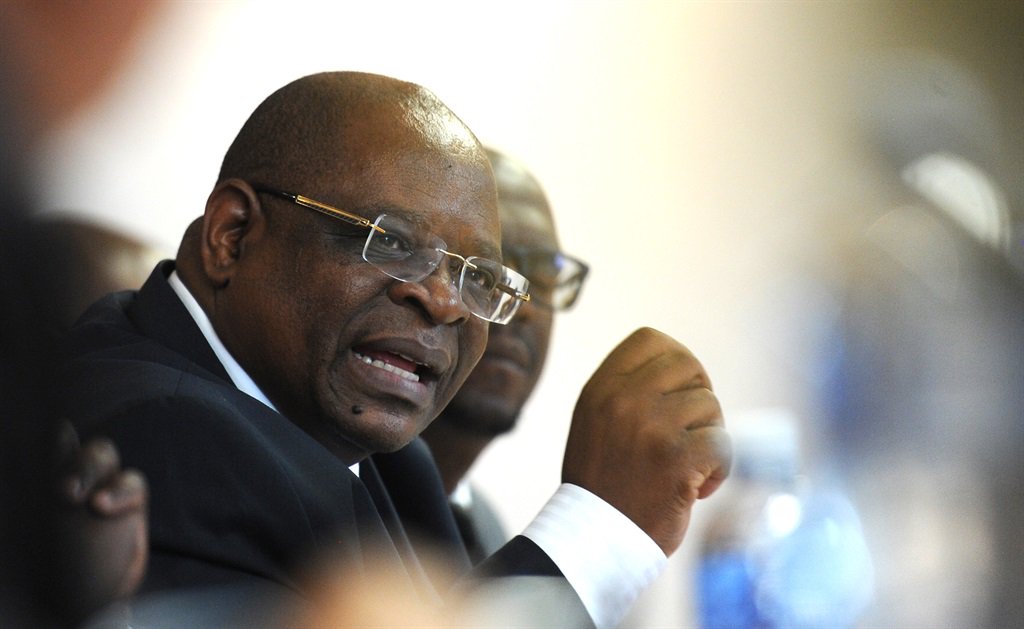The Municipal Budget for the People

By Sbu Zakwe
A UNISA Graduate with over 16 years’ experience in Local Government which started at eThekwini Metro in 2003 as a Trainee Accountant and moved up the ranks over the years to eventual Manager Reconciliations in 2012. Thereafter He joined the KZN Provincial Treasury as a Budget Analyst (Deputy Director) in 2014 to date. Has served in various committees over the years amongst others, Deputy Chairman of the eThekwini Bank Reconciliation Steering Committee (BRSC) from September 2012-2014. Currently serves in the Executive Committee of the KZN CIGFARO from 2017 to date – An Associate Member of the Institute.
What is a Municipal Budget?
In general terms, a budget is a monetary plan to obtain resources (planned revenue) and to utilise those resources (planned expenditure) to meet service delivery objectives of the municipality.
A budget can also refer to a process whereby scarce resources are allocated to unlimited community demands with a focus of sustaining this process for a specified period (1 July – 30 June of each year).
The Purpose of a Municipal Budget
In a municipal context, budgeting is no longer about simply tracking expenditure and revenue over the period of one year, but now it is about maximising the capacity of municipalities to deliver services (including building infrastructure) to all its residents, customers, users and investors.
The main objective of the municipal budget is to allocate limited resources to policy priorities set out in the IDP. Municipal budgeting also promotes transparency, accountability and effective financial management to local communities being served. It strengthens the administration and management of public funds in order for the municipality to be able to function more effectively.
Legislative Framework
For the purposes of planning a municipal budget and reporting cycle it is necessary to have a broad understanding of the legislative framework applicable to local government. A good budgeting system will include well-defined rules (e.g., legislation, supporting regulations and delegations policy). These include, inter-alia:-
• The Constitution of the Republic of South Africa No. 108 of 1996, requires municipal budget and budgetary processes to promote transparency, accountability and effective financial management of the economy [Section 215 (1)].
• The Municipal Finance Management Act 56 of 2003 (MFMA) prescribes the budget, reporting requirements and timelines for the MTREF that municipalities must comply with.
• The Municipal Budgets and Reporting Regulations (MBRR), Government Gazette 32141, dated 17 April 2009 provides all the necessary guidance to ensure that municipalities comply with the stipulations of the MFMA budget formulation requirements. It is applicable to all municipalities and municipal entities.
• The Municipal Budget and Reporting Guidelines establish uniform norms and standards and other requirements necessary to ensure transparency and accountability in the municipal budgeting and reporting processes. This is intended to secure sound and sustainable management of the budgeting and reporting practices of municipalities and municipal entities.
• In addition National Treasury has issued several MFMA Circulars that guide the various steps in the budget process.
• A large number of other Acts, Policies, Regulations and Guidelines are also relevant to municipal budgets. These include:- The Annual Division of Revenue Act (DoRA) enacted annually - Municipal Systems Act No. 32 of 2000 (MSA) - Municipal Structures Act No. 117 of 1998 (MStA) - Municipal Property Rates Amended Act No. 6 of 2004 (MPRA) as amended - Intergovernmental Fiscal Relations Act, No. 97 of 1997 - Municipal Fiscal Powers and Functions Act No. 12 of 2007 - Budget Format Guidelines
What Makes a Good Budget?
(MFMA Compliant Budget)
Funded
Municipalities are required to approve budgets that are fully funded. Municipal Financial Management Act (Act no. 58 of 2003) states that an annual budget may only be funded from:-
• Realistically anticipated revenues to be collected;
• Cash-backed accumulated funds from previous years’ surpluses not committed for other purposes; and
• Borrowed funds, but only for the capital budget referred to in section as 18(1) of the MFMA.
Credible
The MFMA further states that the Mayor of a municipality must co-ordinate the processes for preparing the annual budget and for reviewing the municipality’s integrated development plan and budget-related policies to ensure that the tabled budget and any revisions of the integrated development plan and budget-related policies are mutually consistent and credible. (Section 21(1)(a))
Amongst other things, a credible budget is a budget that:
• Funds only activities consistent with the revised IDP and vice versa ensuring the IDP is realistically achievable given the financial constraints of the municipality;
• Is achievable in terms of agreed service delivery and performance targets;
• Contains revenue and expenditure projections that are consistent with current and past performance and supported by documented evidence of future assumptions;
• Does not jeopardise the financial viability of the municipality (ensures that the financial position is maintained within generally accepted prudential limits and that obligations can be met in the short, medium and long term); and
• Provides managers with appropriate levels of delegation sufficient to meet their financial management responsibilities.
Sustainable
In the municipal context, a budget is a Medium Term Revenue and Expenditure Framework (MTREF) covering at least 7 years. Three years of audited history, the current year being implemented, the budget year and two outer year forecasts. The medium term aspect of a municipal budget facilitates a more strategic and sustainable result. It serves to communicate to all stakeholders’ clarity, certainty and predictability regarding the strategic direction for sustainable service delivery.
In order for the budget to be sustainable it must, inter alia:-
• give effect to the long-term financial and operational sustainability of the municipality;
• be funded by realistically anticipated revenue to be collected and cash-backed accumulated funds from previous years, not committed for other purposes;
• reflect adequate maintenance plans, asset replacement, renewal and depreciation of assets; and
• give consideration to allocative efficiency of the municipality’s spending priorities.

Relevance
The Constitution requires the municipality’s budget and planning processes to give priority to the basic needs of the community, thus promoting social and economic development within communities (Section 153). This can only be achieved if:-
•The budget and IDP are fully aligned and consistent with each other;
•The budget is also aligned to National Programmes (i.e. sufficiently accommodates the National Development Plan (NDP) targets for implementation); and lastly
•The budget makes provision for National and Provincial priorities. Once the above conditions are met, then the budget will be regarded as relevant and compliant with the legislative framework.
The Municipal Budget Cycle
The budget preparation process will commence about 12 months before the start of the budget year. It is considered that a well-run budget process that incorporates the IDP review will facilitate community input, encourage discussion, promote a better understanding of community needs, provide an opportunity for feedback and improve accountability and responsiveness to the needs of the local communities.
It also positions the municipality to represent the needs of the community and to provide useful inputs to the relevant provincial and national department strategies and budgets for the provision of services such as schools, clinics, hospitals and police stations. This will help ensure credible plans and budgets that can be implemented.
The following table sets out six distinct steps to the preparation of a budget. It is important to mention that consultation on the budget occurs throughout the preparation process




